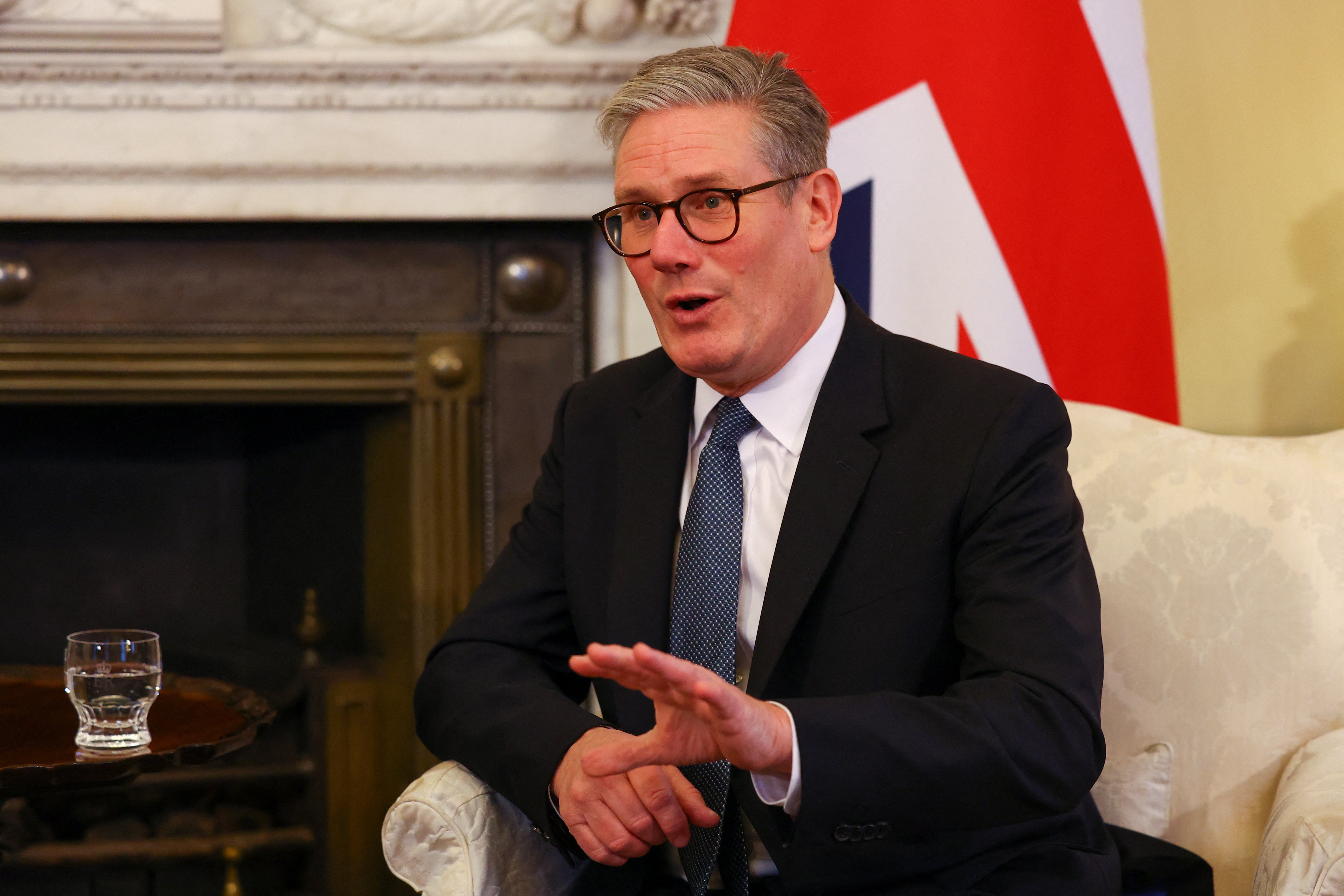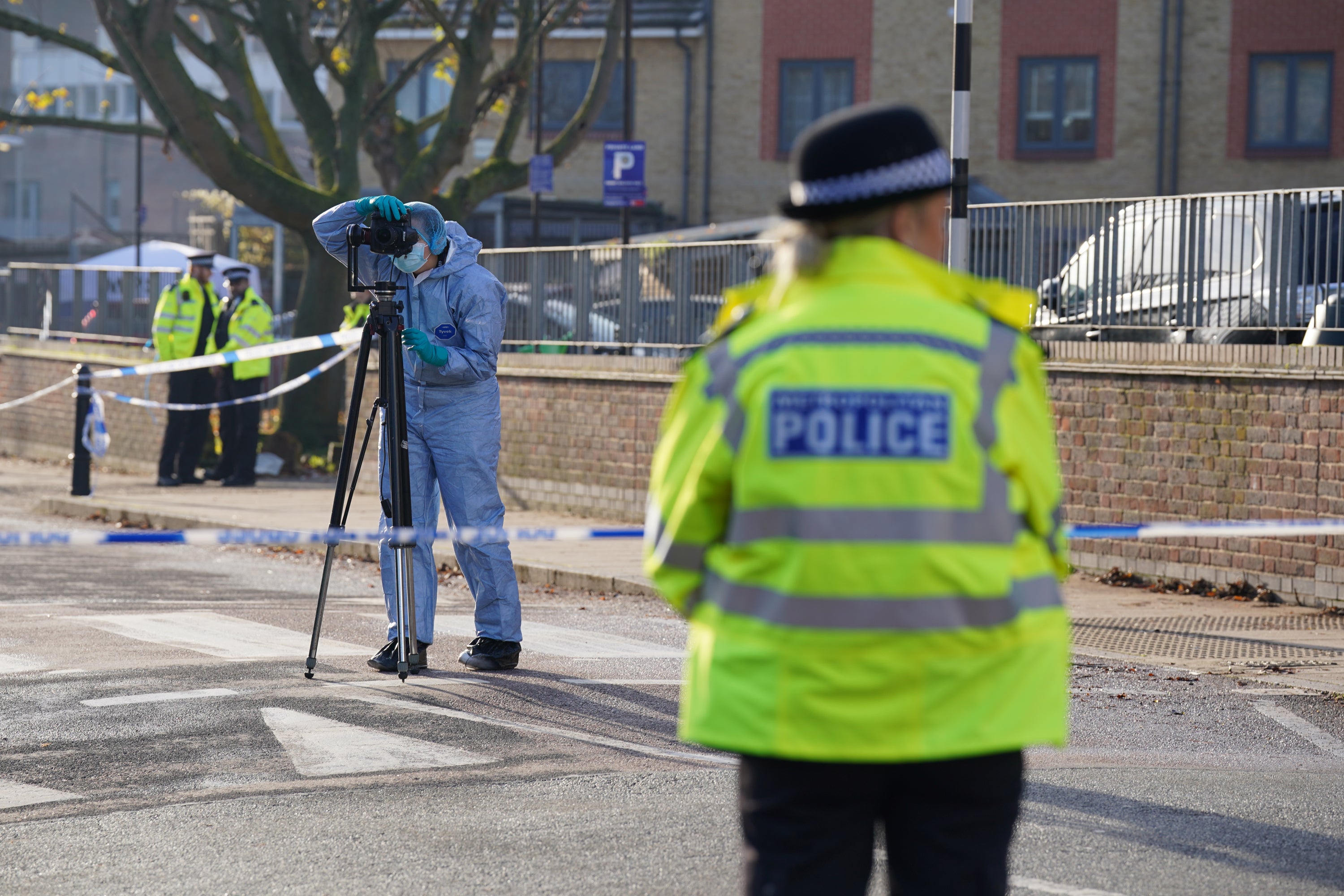Keir Starmer’s big idea? Put more police back on the beat
PM refreshes pre-election pledge of safer streets as key part of ‘plan for change’ – as business group casts doubt on Labour’s mission to grow the economy
Sir Keir Starmer has refreshed a pre-election pledge to restore policing to Britain’s streets as he tries to relaunch his government just five months after winning the election.
The prime minister will announce on Thursday that he plans to put “a named police officer in every neighbourhood” as he tries to win back the trust of voters after a difficult start to his time in Downing Street.
His “plan for change” comes as the British Chambers of Commerce (BCC) issues a report raising serious doubts over whether Sir Keir can succeed in his number one mission of creating economic growth.
The prime minister will make a speech in the south of England with a pitch to voters that Labour is on the side of “hard-working British people and grafters” with support for his party plummeting in the polls.
As well as addressing police numbers, it is understood Sir Keir will attempt to pivot his government’s economic policy away from growth and towards raising the standard of living.
It comes after a bumpy start for Labour in which the prime minister, his ministers and even his wife were caught up in a freebies scandal; the departure of his first chief of staff Sue Gray; the forced resignation of a cabinet minister Louise Haigh; and a barage of criticism over a Budget with a record £40bn of tax rises.

Sir Keir has again evaded calls to explain what “new information” he had about his now-former transport secretary Ms Haigh when she was forced to resign last week following revelations of a historic fraud conviction. At PMQs, Tory leader Kemi Badenoch said Ms Haigh’s past misdemeanour was symbolic of a government that is “a fraud on the British people”.
But despite concerns over messaging and an inability to explain his party’s policies, Sir Keir will plough on with his theme of supporting “working people”.
He will say: “My government was elected to deliver change, and today marks the next step. People are tired of being promised the world, but short-term sticking plaster politics letting them down.
“Hard-working Brits are going out grafting every day but are getting short shrift from a politics that should serve them. They reasonably want a stable economy, their country to be safe, their borders secure, more cash in their pocket, safer streets in their town, opportunities for their children, secure British energy in their home, and an NHS that is there when they need it. My mission-led government will deliver.”
On policing, one of the key missions he laid out in the election campaign, Sir Keir will add: “Our Neighbourhood Policing Guarantee is about more than just increasing numbers. It’s about rebuilding the vital connection between the public and the police.

“Through this visible, responsive police presence in every neighbourhood, we will restore the trust and partnership that lies at the heart of keeping our communities safe.”
His promise of 13,000 extra officers for neighbourhood policing has echoes of the 20,000 promised by Boris Johnson in 2019.
But his speech will be set against increasing scepticism over his economic strategy and fears of a spring tax raid after Rachel Reeves refused to repeat her pledge to not raise taxes again.
As farmers prepare to descend on London for another protest over inheritance tax on family farms, a Labour MP became the first to say they will rebel against the measure. Penrith MP Markus Campbell-Savours said in the Commons he would vote against the “family farm tax” if he thought the vote was meaningful.
Meanwhile, a report by the BCC has lambasted Ms Reeves over her Budget, warning in its quarterly economic review that growth this year would be just 0.8 per cent, a downward revision on its previous estimate, although it had slightly higher forecasts for 2025 and 2026.
Vicky Pryce, chair of the BCC economic advisory council, said: “While government spending will underpin economic growth next year, businesses will be left licking their wounds as the fallout from the tough autumn Budget continues.
“The BCC forecast shows the likely impact of rising costs, from changes such as national insurance. This means business investment and jobs will be hit.
“As they face a difficult 2025, firms need reassurance the government can very quickly outline a clearer framework to boost growth and business investment.”
Join our commenting forum
Join thought-provoking conversations, follow other Independent readers and see their replies
Comments